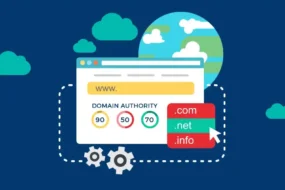
Welcome to our comprehensive guide on demystifying shared hosting! If you’re just starting your online journey or looking for cost-effective web solutions, you’re in the right place. Shared hosting is a popular choice for individuals and small businesses due to its affordability and ease of use. In this guide, we’ll delve into the intricacies of shared hosting, explore its benefits and drawbacks, and provide valuable insights to help you make an informed decision.
Understanding Shared Hosting
Shared hosting is a type of web hosting where multiple websites are hosted on a single server. This means that resources such as CPU, disk space, and bandwidth are shared among several users. It’s like renting a room in a shared apartment building – you have your space, but you share common resources with others.
How Shared Hosting Works
In shared hosting, a server is divided into multiple accounts, each allocated a portion of resources. When someone visits your website, their browser sends a request to the server, which retrieves and serves your website’s files. Since resources are shared, the performance of your website may be affected by other sites on the same server.
Benefits of Shared Hosting
Affordability: Shared hosting plans are budget-friendly, making them ideal for beginners or small businesses with limited budgets.
Ease of Use: Most shared hosting providers offer user-friendly control panels, making it easy to manage your website, emails, and other aspects of hosting.
Technical Maintenance: The hosting provider handles server maintenance and technical issues, allowing you to focus on building your website.
Drawbacks of Shared Hosting
Limited Resources: Since resources are shared, your website’s performance may be impacted during traffic spikes or if other sites consume excessive resources.
Security Risks: Shared hosting environments are more vulnerable to security breaches since multiple websites share the same server.
Less Control: You have limited control over server configurations and settings compared to other hosting options like VPS or dedicated servers.
Choosing the Right Shared Hosting Plan
Selecting the right shared hosting plan is crucial for the success of your website. Here are some factors to consider:
Resource Allocation
Evaluate the amount of CPU, RAM, disk space, and bandwidth offered in each hosting plan. Ensure it meets your website’s requirements and allows room for growth.
Performance and Uptime
Check the hosting provider’s uptime guarantee and performance metrics. A reliable hosting provider should offer at least 99.9% uptime to ensure your website is accessible to visitors.
Support and Customer Service
Consider the level of customer support provided by the hosting provider. Look for companies offering 24/7 support via multiple channels such as live chat, phone, and email.
Setting Up Your Website on Shared Hosting
Once you’ve chosen a shared hosting plan, it’s time to set up your website. Here’s a step-by-step guide to get you started:
Domain Registration: Register a domain name for your website through the hosting provider or a domain registrar.
Account Setup: Sign up for a shared hosting account and complete the setup process.
Website Installation: Use the hosting provider’s control panel to install a CMS (Content Management System) like WordPress or upload your website files via FTP.
Configuration: Configure your website settings, including domain redirection, email setup, and security measures.
Testing: Test your website to ensure everything is functioning correctly before making it live.
Optimizing Your Shared Hosting Experience
To get the most out of your shared hosting plan, consider implementing the following optimization strategies:
Content Optimization
Optimize your website’s content for speed and performance by compressing images, minifying CSS and JavaScript files, and enabling caching.
Security Measures
Implement security measures such as SSL certificates, regular backups, and strong passwords to protect your website from potential threats.
Regular Maintenance
Perform regular maintenance tasks such as updating plugins, themes, and CMS versions to ensure optimal performance and security.
Final Words
In conclusion, shared hosting offers an affordable and user-friendly solution for individuals and small businesses looking to establish an online presence. By understanding how shared hosting works, weighing its pros and cons, and following best practices, you can make the most of this cost-effective web hosting option.
Commonly Asked Questions
Q1: Is shared hosting suitable for e-commerce websites?
A1: Yes, shared hosting can support e-commerce websites, but it’s essential to choose a reliable hosting provider with robust security features and sufficient resources to handle online transactions.
Q2: Can I upgrade from shared hosting to a different hosting plan in the future?
A2: Yes, most hosting providers offer scalability options, allowing you to upgrade to VPS or dedicated hosting as your website grows and requires more resources.
Q3: What security measures should I implement for my shared hosting account?
A3: It’s crucial to implement SSL certificates, regularly update software, use strong passwords, and perform regular backups to enhance the security of your shared hosting account.
Q4: Will my website’s performance be affected by other sites on the same server?
A4: Yes, since resources are shared in a shared hosting environment, your website’s performance may be impacted by other sites consuming excessive resources. However, choosing a reputable hosting provider can mitigate this risk.
Q5: Can I host multiple domains on a shared hosting account?
A5: Yes, many shared hosting plans allow you to host multiple domains under a single account, making it a cost-effective option for managing multiple websites.
Advertisement








